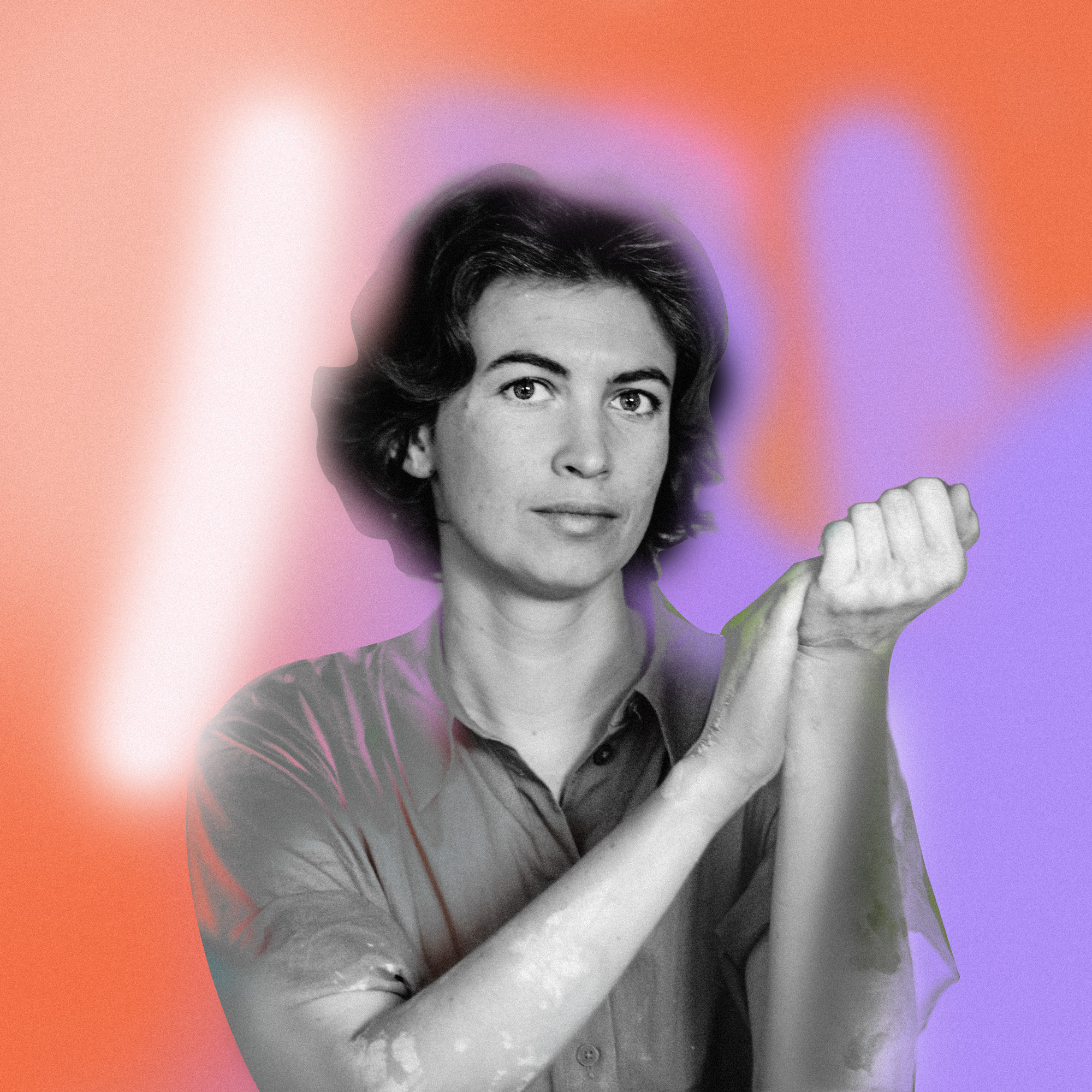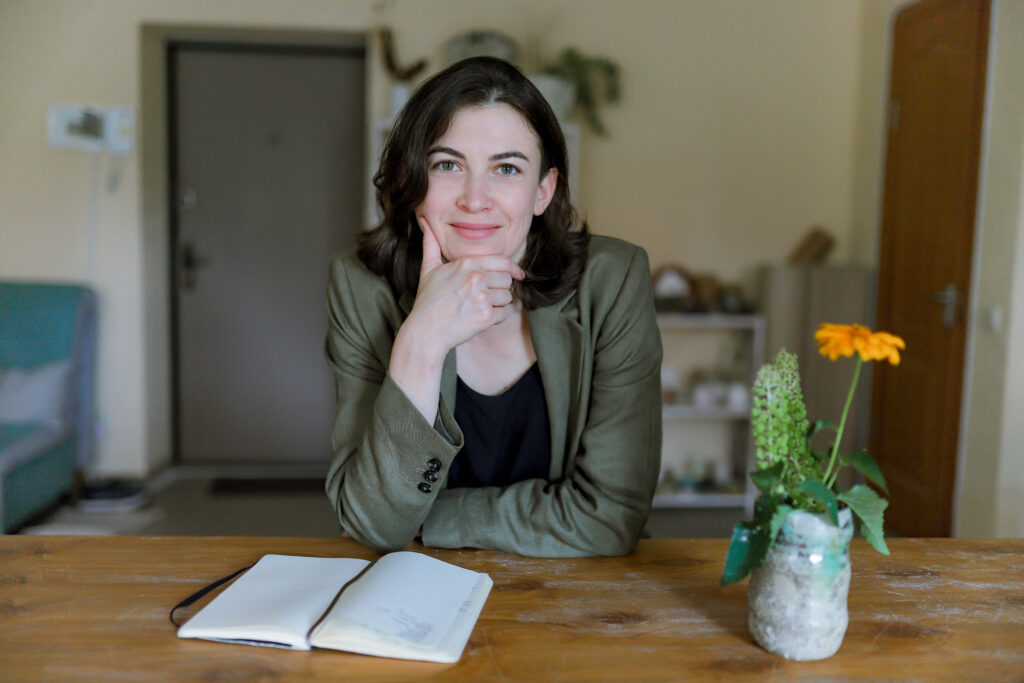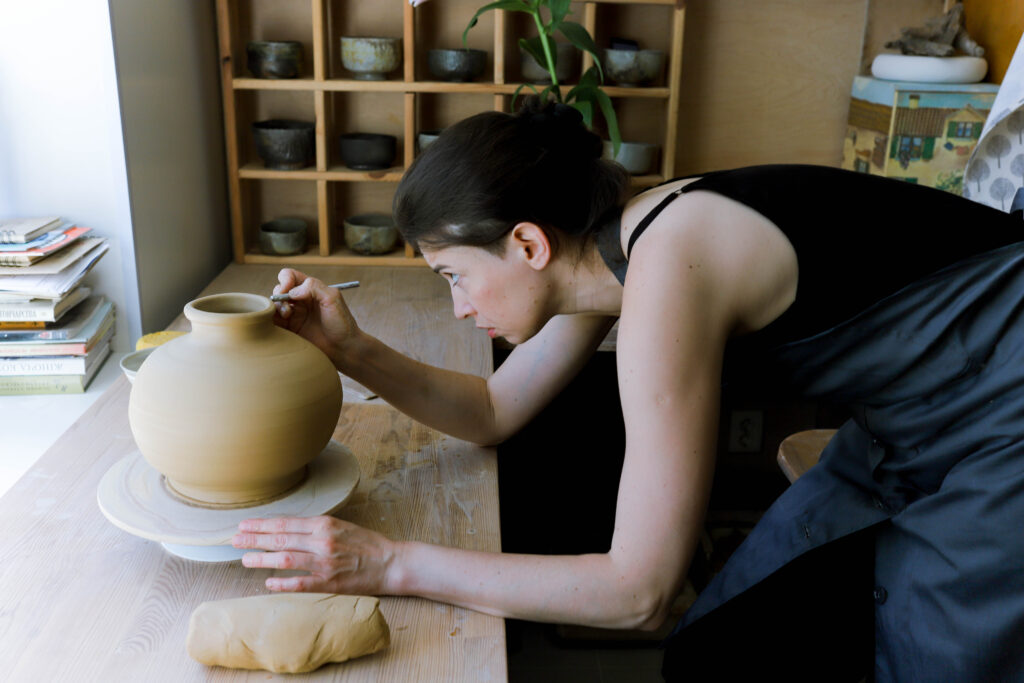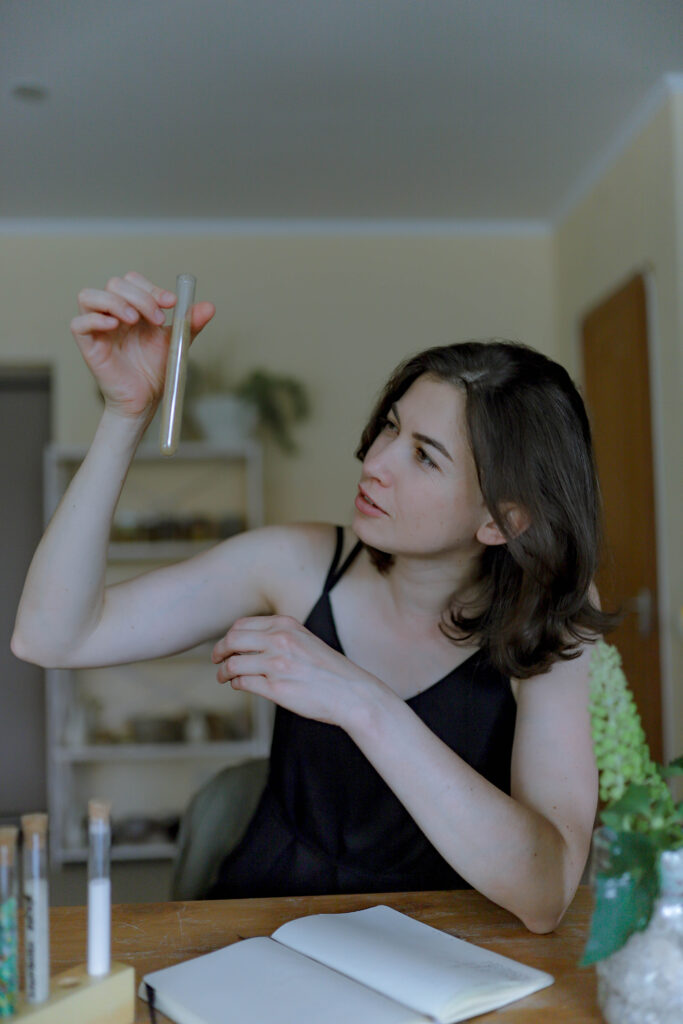The Guide to Saving the World as a Potter
Yuliya Makliuk

Climate crisis, injustice and wars are a threat to human civilization. Many ceramic artists feel a calling to be part of the solution, yet ceramics as an art and a craft is underrepresented in the realm of political art. From minimizing the environmental footprint of their practice to creating conceptual art that criticizes the current state of affairs, there’s a growing number of ceramicists who already lead the way but are unknown to the general public. My aim is to identify and celebrate the potters who are on a mission to save the world.
What will you be working on during the fellowship?
I work with ceramic artists, crafters, enthusiasts, curators and scholars in Ukraine and globally. With my project I hope to help them to find their unique way of adequately responding to societal challenges. I want to shape the emerging group of keen ceramicists into an interconnected community of sustainability actors. This will be done by the means of participatory online events, interviews with the leading peers and blogposts. The output will be a published book.
To what future do you aspire?
In the future we are free to be our truest selves. People are no longer limited and humiliated by experience of poverty, environmental catastrophe and war. Our creative, cognitive and spiritual potential is nurtured, rather than being smashed by the stupefying reality of survival and alienation. In this future, we’re able to break the cycle of causing and experiencing trauma ‒ to each other and to other forms of life. It frees us to be who we truly are: co-creators of solutions and discoveries.
What does being a risktaker mean to you?
Making conscious efforts to remain curious and vulnerable in a world shrouded in a sense of doom. Exercising hope in actions big and small and crafting paradoxical solutions that bridge different realities. Having courage to take on one’s role in the play of life with all the responsibility that comes with it.
The interview
Hi Yuliya, could you please tell us a bit about yourself and your journey as a ceramic artist?
Hello there! I’m Yuliya Makliuk, a ceramic artist with a deep passion for the environment. My artistic practice reflects my personal journey as a potter navigating the challenges of the climate crisis and war. I specialize in crafting both functional and expressive ceramic pieces and am actively engaged in research and education. Since 2022, I’ve also been directing my ceramic work towards supporting war relief efforts in Ukraine, my home.

Years ago, as you embarked on your ceramics journey with dreams of owning your studio, you grappled with making sustainable choices. Can you share more about how you tackled this challenge?
Certainly. At the outset, I struggled with determining where to begin and what to prioritize in terms of sustainability. Advice from various sources often felt subjective and led to confusion.
Limited time and resources forced me to seek impactful sustainability measures. I was eager to create pottery instead of being stuck in endless research. Drawing on my background in Ecology, I recalled approaches to address this issue accurately. My Master’s thesis on carbon footprints at festivals and my experience as an environmental consultant guided me.
The solution became clear—I decided to estimate the carbon footprint of studio pottery. The results and action points from this research provided the foundation for my practice and also laid the groundwork for the book in which I will share all these findings.

Your dedication to sustainability is commendable. How do you believe potters can contribute to taking care of our planet?
Many ceramic artists are already conscious of the environmental impact their craft can have. We often feel a sense of responsibility or guilt about the ecological footprint of our practice and actively seek ways to align our pottery with global well-being.
As the climate crisis intensifies, it’s increasingly difficult to justify depleting non-renewable resources and emitting large amounts of CO2 solely for the joy of creating pottery. Some artists have even contemplated giving up pottery due to these concerns.
Do you feel that change is happening within the ceramics community to address these challenges?
Absolutely. A global eco-friendly movement in pottery is emerging. Thought leaders such as Robert Harrison and Sara Howard have authored insightful books on sustainable and circular ceramics. Initiatives like the NCECA Green Task Force in the USA and Clay Matters in Australia are bringing studio ceramicists together to explore the evolving role of the craft. Some of these innovative minds are the ones I’ve had the privilege to interview for my book.
Amidst record-breaking temperatures, a global pandemic, and the ongoing war in Ukraine, I am keenly aware of the challenging times we live in. Nevertheless, I remain hopeful that a substantial part of the solution lies within the creativity and power of individuals. As artists, makers, and entrepreneurs, we possess a unique superpower—the ability to manifest a better world through imagination and craft.
You’ve expressed a strong belief in enhancing pottery’s social impact. Could you provide examples of how creative individuals are achieving this?

Certainly. Many of our peers are utilizing their creative talents to address climate change and social injustices. They convey powerful messages through their art, craft functional pieces for sustainable living, raise charitable funds, restore ecosystems with clay, and foster community connections. It’s an honour to stand alongside these committed pioneers and introduce some of them through my book. I hope their stories inspire and guide others on their journey towards a more sustainable pottery practice.
Join this journey at https://www.instagram.com/hereandnowpottery/, https://www.youtube.com/@MsMcluck or https://www.patreon.com/HereAndNowPottery